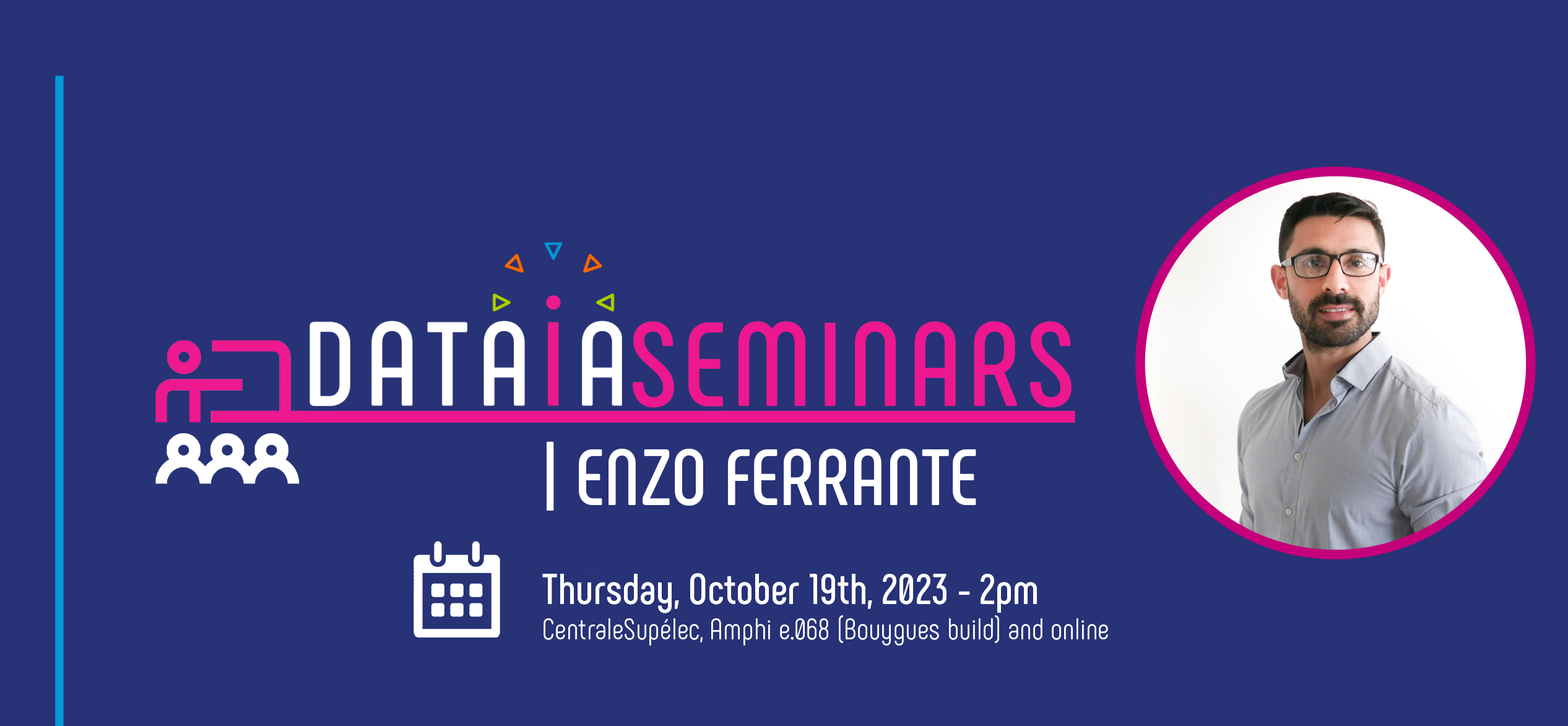Watch the replay of the seminar and listen to the speaker's presentation!
Title
Improving anatomical plausibility and auditing fairness in deep segmentation networks
Abstract
The evolution of deep segmentation networks has empowered the enhancement of extensive medical imaging datasets with automatically generated anatomical segmentation masks. In this talk we will discuss recent methods we proposed to improve anatomical plausibility in deep segmentation networks. By improving anatomical plausibility we mean to ensure that the segmentation masks produced by our network are constrained to the actual shape and appearance of organs. We will briefly discuss some of our studies [1,2,3] which use autoencoders to learn low dimensional embeddings of anatomical structures and propose different ways in which they can be incorporated into deep learning models for segmentation and registration.
The complexity is further intensified by recent studies indicating potential biases in AI-based medical imaging models related to gender, age, and ethnicity [4,5]. Here we will share insights from our journey in developing the CheXMask large-scale database of x-ray anatomical segmentations [6]. We will delve into the strategies we implemented for automatic quality control and the methods we formulated for unsupervised bias discovery in the absence of ground-truth annotations [7].
[1] Learning deformable registration of medical images with anatomical constraints | Mansilla L, Milone D, Ferrante E.
Neural Networks (2020)
[2] Post-DAE: Anatomically Plausible Segmentation via Post-Processing with Denoising Autoencoders | Larrazabal A, Martinez C, Glocker B, Ferrante E.
IEEE Transactions on Medical Imaging (2020)
MICCAI 2019 (conference version)
[3] HybridGNet - Improving anatomical plausibility in image segmentation via hybrid graph neural networks: applications to chest x-ray image analysis | Gaggion N, Mansilla L, Mosquera C, Milone D, Ferrante E.
IEEE Transactions on Medical Imaging (2022)
MICCAI 2021 (conference version)
[4] Gender imbalance in medical imaging datasets produces biased classifiers for computer-aided diagnosis | Larrazabal AJ, Nieto N, Peterson V, Milone DH, Ferrante E.
Proceedings of the National Academy of Sciences (2020)
[5] Addressing fairness in artificial intelligence for medical imaging | Ricci Lara MA, Echeveste R, Ferrante E.
Nature communications (2022)
[6] CheXmask: a large-scale dataset of anatomical segmentation masks for multi-center chest x-ray images | Gaggion N, Mosquera C, Mansilla L, Aineseder M, Milone DH, Ferrante E.
arXiv preprint (2023)
[7] Unsupervised bias discovery in medical image segmentation | Gaggion N, Echeveste R, Mansilla L, Milone DH, Ferrante E.
MICCAI FAIMI Workshop (2023)
Biography
Dr. Enzo Ferrante completed his PhD in Computer Sciences at Université Paris-Saclay and INRIA (Paris, France), and worked as a postdoctoral researcher at Imperial College London in the UK. He has also been a visiting student at the CVGL Lab at Stanford University (2014), Fulbright Visiting Researcher at the A. Martinos Center for Biomedical Imaging (Massachusetts General Hospital - Harvard Medical School, 2021) in Boston, and currently he is a holds a DATAIA Invited Professor position at MICS Lab, Centrale-Supelec, Université Paris-Saclay.
He returned to Argentina in 2017, holding a faculty researcher position at Argentina's National Research Council (CONICET). He regularly serves as a member of the program committee of important medical imaging conferences like MICCAI, MIDL, ISBI and IPMI, and he has organized several workshops in this context. He leads the Machine Learning for Biomedical Image Computing research line in the Research Institute for Signals, Systems and Computational Intelligence, sinc(i). In 2020 Dr Ferrante received the Young Researcher Award from the National Academy of Sciences of Argentina and the Mercosur Science & Technology Award for his scientific contributions to AI for medical image computing. His research interests span artificial intelligence and biomedical image analysis, currently focusing on fairness, domain adaptation and generalization, calibration and anatomical segmentation of medical image.
- This seminar, co-organized with CentraleSupélec MICS laboratory, will be held in English only. It will take place on Thursday, October 19, 2023, from 2 to 3:30pm at CentraleSupélec, Amphi e.068 (Bouygues Building). It will be followed by a coffee break.
- This seminar will also be broadcast by videoconference.
Don't miss the announcement of a new DATAIA seminar!
Sign up for our seminar mailing list by clicking here.






